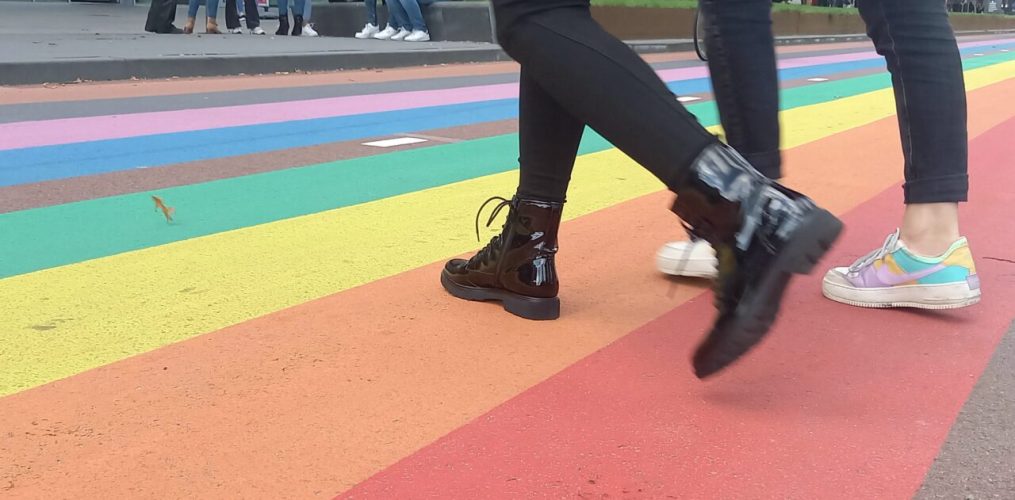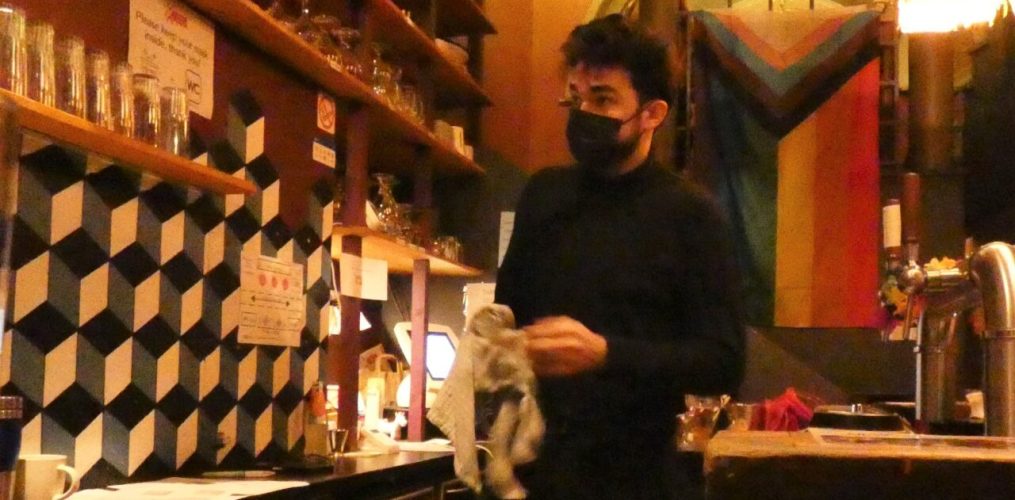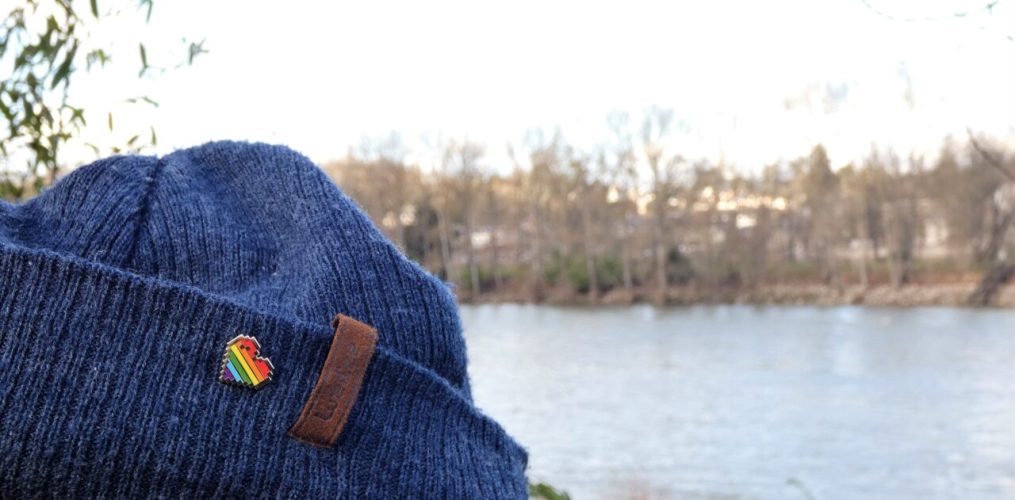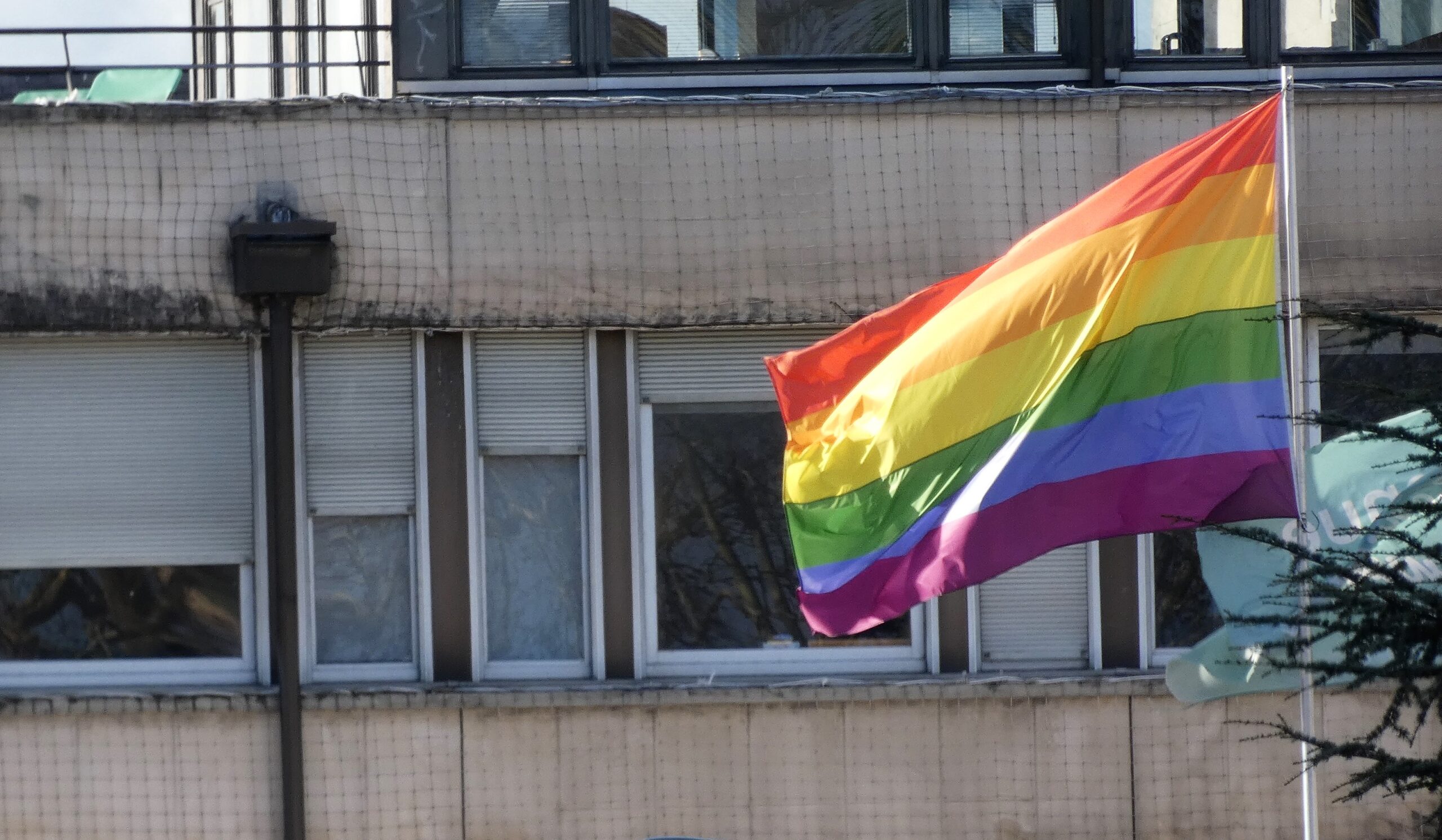Being out of the closet isn’t as accepted in Poland as it is in other countries. Picture by: Jasmijn Berkers
“It’s risky to carry a rainbow-colored bag with you. Or even to have bright colored hair”, tells 25 year old Agu Biegun who identifies as non-binary. Though the EU is now threatening to hold back funds from regions in Poland that have so called ‘lgbt-free zones’, Agu is still sceptical anything will change: “It’ll only be about money. The problems are rooted way deeper.”
“I always carry both a taser and pepper spray with me whenever I go out”, says Agu, “And I live in Wrocław, which lies more in the west of Poland. Compared to the east people are rather accepting here.” Their family lives in a small village in the east, where Agu also grew up. “It’s close to the lgbt-free zones, and almost became one too: the votes were very close”, Agu sights, “I’ve been out of the closet for five years in Wrocław, where I live now, but I only came out to my mother a couple of months ago. She thinks that my new friends in Wrocław somehow influenced me with the ‘lgbtq-ideology’ and that I’m ‘just confused’.” According to Agu they get little to no support from their family.
“Luckily I’ve also got my own ‘chosen family’”, Agu tells with a smile. “Those are my friends in Wrocław. It’s super important to have such a chosen family,” Agu explains, “especially in Poland, because in a lot of cases your biological family doesn’t support you.”
[aesop_image img=”https://svjmedia.nl/jasmijnberkers/wp-content/uploads/sites/427/2023/01/20210923_1237190-2-scaled-1.jpeg” panorama=”off” imgwidth=”50%” align=”center” lightbox=”on” captionsrc=”custom” caption=”Not all people from the lgbtq-community get accepted at home. Picture: Jasmijn Berkers” captionposition=”left” revealfx=”off” overlay_revealfx=”off”]
Agu rarely goes back to their home village. “It’s hard for me to go there, because I sort of have to go back into the closet. My family is very homophobic and transphobic, so it’s emotionally exhausting to be there. My friends in Wrocław worry a lot about me whenever I head back there, because it’s horrible for my mental health.”
[aesop_quote type=”pull” background=”#282828″ text=”#ffffff” align=”left” size=”2″ quote=”"My mum would have a heart attack if I would speak to my little brother about anything queer-related. She think I’ll somehow force the ‘lgbt-ideology’ on him."” parallax=”off” direction=”left” revealfx=”off”]
Poland is still the least lgbtq-friendly country in the EU, according to the Rainbow Europe Index of 2021, published by ILGA-Europe. This is the second year in a row they got the lowest score in the EU. Out of the 100 points the country could score, Poland only received 13. To name a few things: Poland still doesn’t have gay marriage, lacks basic rights that should protect the lgbtq and has these (previously mentioned) ‘lgbt-free zones’ since June 2020. These zones (covering five Polish provinces, about one-third of the country) are municipalities that have declared themselves ‘free of the lgbtq-ideology’: marches and other lgbtq-events are not allowed. The EU is now holding back funds from these municipalities of about €126.000. On the 22th of October the first province, Swietokrzyskie, has revoked their declaration to being a lgbt-free zone.
“I doubt that’ll do anything though”, says Agu, “There need to be bigger changes in our law, in our politics, in our way of educating.. Not just a name change of these zones so they can get their money.” Agu is trying to make that change happen together with a lot of other lgbtq-activists in Poland (and around the globe). “I’ve thought many times about leaving this country because of all the hate, but now I’m certain on staying. People need me here, because only together we can fight for a lgbtq-friendly Poland.. We’ve still got a long way to go.”



